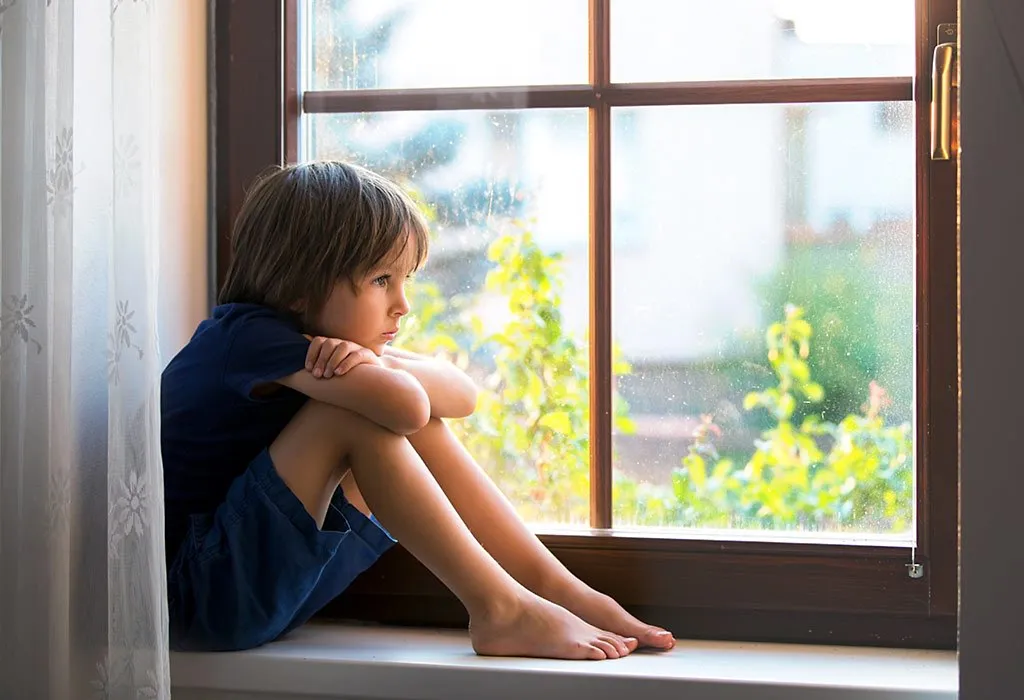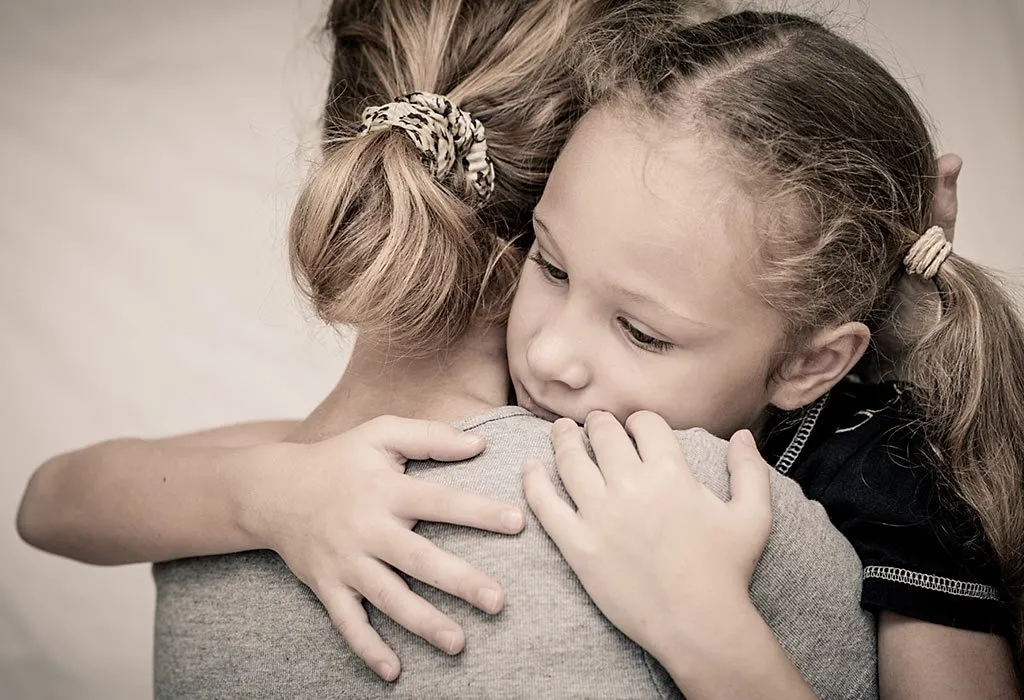Effective Tips to Handle Your Highly Sensitive Child
- What Is a Highly Sensitive Child?
- Signs of Highly Sensitive Kids
- How to Deal With a Highly Sensitive Child?
A highly sensitive child is born with a sensitive nervous system which reacts quickly to even the smallest of situations which may hardly hold any importance to others. Such a child is quick to react to everything and thinks anything and everything with a lot of depth. They also get easily overwhelmed by seeing others in emotional distress. Such children are either very calm, introvert and fairly easy to raise or are very active, stubborn and very demanding by nature. It is usually seen that all highly sensitive children are hypersensitive to their emotional and physical environment.
Many parents, upon seeing their children get overwhelmed or distressed easily may often wonder “is my child highly sensitive?” It is usually seen that the symptoms of an over-sensitive child are usually visible in an individual from a very young age. Listed below are 12 signs of a highly sensitive child.
1. They are full of empathy.
Children who are highly sensitive are very empathetic towards others, and they always place other’s emotional needs before their own. As a result, they usually take in other’s emotional pain which affects their physical, mental and emotional well-being.
2. They are overstimulated.
They are easily stimulated to noise, smell, touch visuals, movement, and taste. So much so that it can affect their lives. For such highly sensitive children, a certain noise or visual may get them distressed or overwhelmed.

3. They always try to please others.
Since they do not want to hurt people, they always go out of their way to help people to please them. This, at times, turns out to be damaging and harmful to them.
4. They are loners.
Highly-sensitive children may seem to be an extrovert, talkative, in love with people but they easily get overstimulated and therefore require some “me-time”. They need some time to be alone to disconnect themselves from the outside world.
They are so emotional by nature that they are always ruled by their heart, rather than their head. Therefore, their first instinct is to follow their heart.
6. They dislike all things negative.
Such children have an intense dislike for violence or something like a horror movie. They will quite naturally stay away from fights and arguments.
7. They complain often.
Children who are highly sensitive will quite often complain and whine at the slightest of problems like itchy clothing, seams in the socks or even labels brushing against their skin.
8. Uncomfortable with change.
They abhor change. The slightest change in their room, house or surroundings may make them feel uncomfortable.
You may often see them getting startled when there is loud noise. Noisy surroundings are a complete no-no for highly sensitive children.
10. They are deep thinkers.
They may often ask deep, provoking questions which may amaze adults. They also think a lot and observe a lot around them. This makes them ask a volley of questions, which, more often than not, leaves the adults irritated.

11. They love animals.
They may have a special affinity towards animals. Death of a pet at home may make a highly sensitive child depressed for days. Love towards animals may be so intense that seeing anyone being cruel towards an animal may make them angry.
12. They have a shy nature.
Highly sensitive kids are very shy around complete strangers. This makes them underperform near unknown people. However, after they get to know someone, they start getting friendly with them and may easily open up, although this may take quite a bit of time.
How to Deal With a Highly Sensitive Child?
Having a highly sensitive kid at home may be difficult or even frustrating at times. It may be a challenge for parents to raise highly sensitive children. However, it is important that parents understand them and accept them as they are. They are highly intelligent beings with a great sense of humor. They are very intuitive and are great observers. They are also gifted with empathy for others which make them unique.
1. Allow her some “alone” time.
The most important thing for a parent to do with a highly sensitive kid is to understand her and accept her as she is. A highly sensitive child needs some space and time of her own to recharge herself. For her, it is as important as breathing.
2. Show some empathy.
A common question many parents ask is how to help a highly sensitive child? Well, all you need to do is understand and empathies with them. It is important to understand that having a highly sensitive child at home means more startles, more emotional flare-ups, more hurts, and more wailings. It is human for parents of such kids to feel frustrated at times and lose their patience, but you need to keep it in check.

3. Practice acceptance.
Never be apologetic to people for her idiosyncrasies. She is born with it and apologizing to people every now and then near her will make her feel that her emotions, empathy, sensitivity or the way she feels or behaves are not right. This may result in bringing her self-esteem down.
4. Macie her overcome fears slowly.
Making your highly sensitive child do something she detests or fears can help her overcome the fear of the thing or situation. However, this should be done at a gradual pace and not in a hurried manner.
For example, she may detest wearing a cardigan since she feels itchy in it but asking her to wear it for some time and complimenting her in it may make her want to wear it again for a longer time. It must be done in such a subtle manner that it does not feel like a punishment to her.
5. Keeping a pet
Highly sensitive children love animals. Therefore, put their affinity into use and get home a pet for them. Having a pet at home will calm them down, and they will also have a companion to play with. However, be sure that your child is not allergic to pets.

6. Do not use severe methods of discipline a highly sensitive child.
Using the usual severe methods of punishment like spanking, yelling, etc. will only make matters worse for a highly sensitive kid. She may respond the other way round by screaming, crying, and throwing temper tantrums. Therefore, disciplining highly sensitive kids should be done differently.
For example, you can ask your highly-sensitive child the repercussion of having ice cream when she has just got out from a bout of cold and cough instead of telling her that she will get spanked if she eats it.
7. Talk to your child when she is upset.
When you see your child crying, ask her about what has upset her. Coax her a bit by asking questions to help her to answer. After she tells you the reason, you may ask her what you can do to make her feel good again. This too may require you to help her out, and you can do so by giving her solutions. However, some children may take some time crying it out before they tell you what is bothering them.
8. Help them stand up against bullies.
Highly sensitive children may often cry or act differently, even in normal situations. Therefore, they are always at a risk of getting bullied by other children at school. In such a situation, firstly teach your child not to be afraid. If such a situation arises, tell her that she should put up a brave and confident face in front of the bullies and tell the teacher about it. Also, teach her to walk in a crowd instead of walking alone. As a parent, you may also go and have a word with her class teacher and the concerned school authorities about the situation.
9. Do not try to change them.
Highly sensitive children cannot help but feel the way they feel. They are born that way. Thus, as parents should accept the way they are, don’t try and change them. Trying to change a highly sensitive child will only prove to be detrimental to her overall growth.
10. Accept and appreciate your highly sensitive child for who she is.
A highly sensitive kid is endowed with many good qualities that you can be proud of. You will realise that she is more caring, compassionate and empathetic towards people and animals than many kids her age. She is highly intuitive and can read a person well. Highly sensitive children are also very creative and turn out to be great writers, storytellers, actors, and artists. Therefore, accept your highly sensitive child and appreciate her for the wonderful person she is.
11. Help your highly sensitive child relax.
Some light exercises can help your highly sensitive child relax and calm down. You can introduce a half-an-hour of pranayama and yoga session into your child’s everyday routine. In order to encourage her, you can join her, too. Enrolling her in an art class or something of her interest, taking her for an evening stroll or a jog can also do wonders in calming and relaxing her.

12. Touch
Giving her a pat to appreciate her or a hug to let her know that you are there for her goes a long way to make her feel loved and secure.
Before you follow any of the above tips, it is important that you know what works best for your child. Things which may work well for one highly sensitive child may not have the same impact on other highly sensitive children. Therefore, understanding your child is imperative to help her grow into a healthy, sensitive individual.
SHIJINA RIJESH
